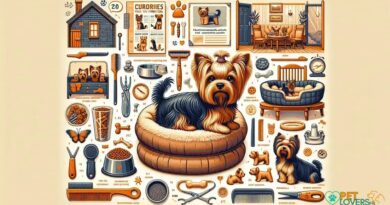What is: Xylitol contamination in treats
What is Xylitol?
Xylitol is a sugar alcohol commonly used as a sweetener in various food products, including sugar-free gum, candies, and some baked goods. While it is safe for human consumption, xylitol is highly toxic to dogs, even in small amounts. Understanding what xylitol is and its effects on dogs is crucial for pet owners, especially when it comes to treats and snacks that may contain this ingredient.
How Does Xylitol Affect Dogs?
When dogs ingest xylitol, it can lead to a rapid release of insulin from the pancreas, resulting in a dangerous drop in blood sugar levels, known as hypoglycemia. Symptoms of xylitol poisoning in dogs can include vomiting, loss of coordination, seizures, and even liver failure in severe cases. The effects can be swift, often occurring within 30 minutes of ingestion, making it essential for dog owners to act quickly if they suspect their pet has consumed xylitol.
Sources of Xylitol Contamination in Treats
Xylitol can be found in a variety of products, including some dog treats that are marketed as “sugar-free” or “low-calorie.” Additionally, human food items such as peanut butter, baked goods, and certain candies may contain xylitol. It is vital for pet owners to carefully read ingredient labels and be aware of the potential for xylitol contamination in treats that may seem harmless.
Identifying Xylitol in Dog Treats
To protect your dog from xylitol contamination, always check the ingredient list on dog treats before purchasing. Look for terms like “xylitol,” “sugar alcohol,” or “artificial sweeteners.” If you are unsure about a product, it is best to avoid it altogether or consult with your veterinarian for safe treat recommendations.
Symptoms of Xylitol Poisoning in Dogs
Recognizing the symptoms of xylitol poisoning is crucial for timely intervention. Common signs include lethargy, vomiting, tremors, and seizures. If you notice any of these symptoms after your dog has consumed a treat, especially if it contains xylitol, seek veterinary assistance immediately. Early treatment can significantly improve the outcome for your pet.
What to Do If Your Dog Ingests Xylitol
If you suspect that your dog has ingested xylitol, it is essential to act quickly. Contact your veterinarian or an emergency animal clinic right away. Provide them with as much information as possible, including the amount of xylitol consumed and the time of ingestion. Do not attempt to induce vomiting without professional guidance, as this can sometimes worsen the situation.
Preventing Xylitol Contamination
To prevent xylitol contamination in your dog’s diet, educate yourself about safe and unsafe foods. Avoid giving your dog human food that may contain xylitol, and opt for treats specifically formulated for dogs. Additionally, keep all xylitol-containing products out of reach to prevent accidental ingestion.
Safe Alternatives to Xylitol-Containing Treats
There are many safe and healthy alternatives to xylitol-containing treats for dogs. Look for treats made with natural ingredients and without artificial sweeteners. Ingredients like pumpkin, sweet potato, and peanut butter (without xylitol) can make delicious and safe snacks for your furry friend.
The Importance of Veterinary Guidance
Regular consultations with your veterinarian can help ensure that your dog’s diet remains safe and healthy. Your vet can provide valuable insights into which treats are appropriate and can help you recognize any potential hazards in your dog’s diet. Always prioritize your pet’s health by staying informed and proactive.
Conclusion: Staying Informed About Xylitol
Staying informed about xylitol contamination in treats is essential for every dog owner. By understanding the risks associated with xylitol and taking preventive measures, you can help keep your furry friend safe and healthy. Always prioritize reading labels, consulting with your veterinarian, and choosing safe treats for your beloved pet.



